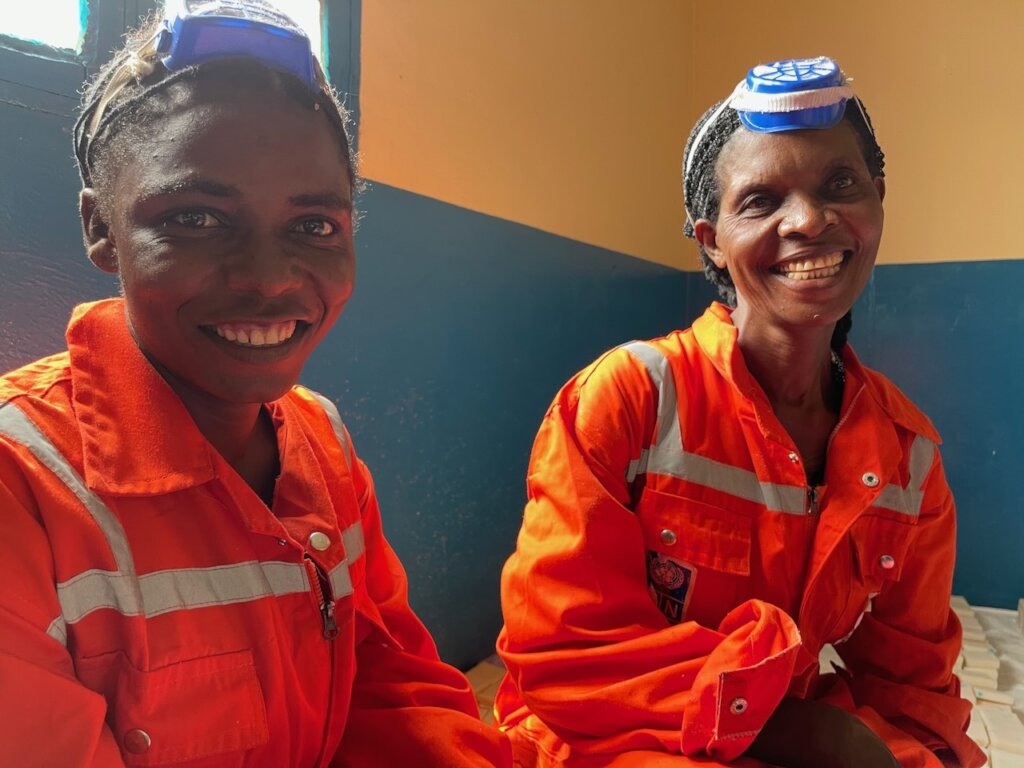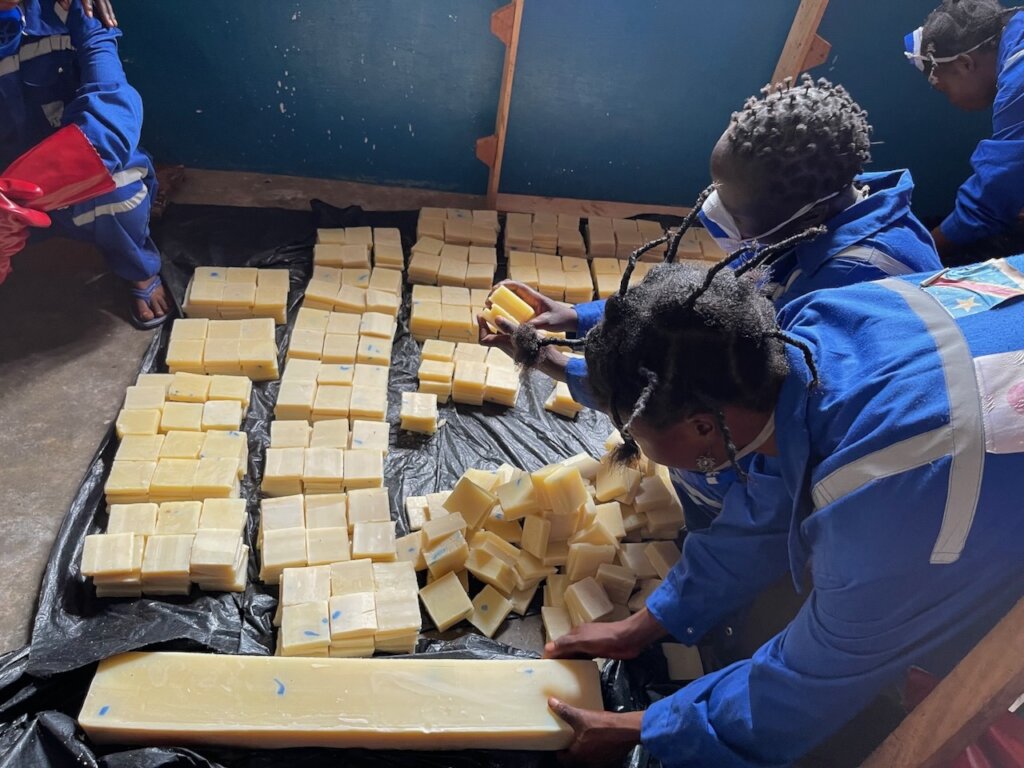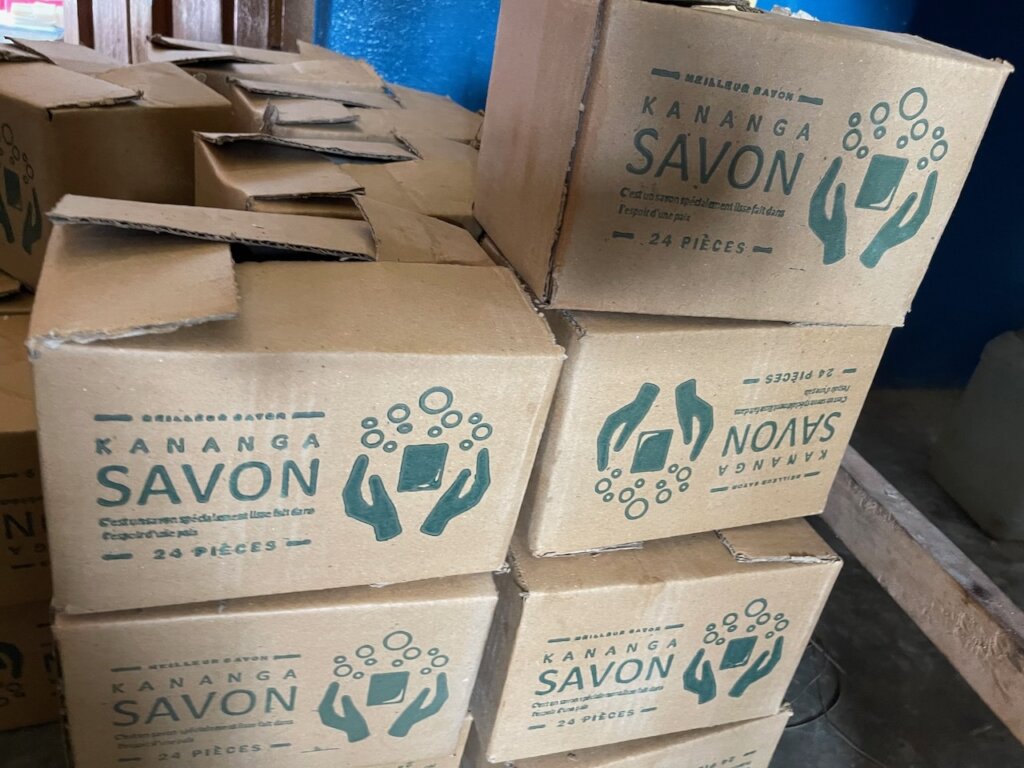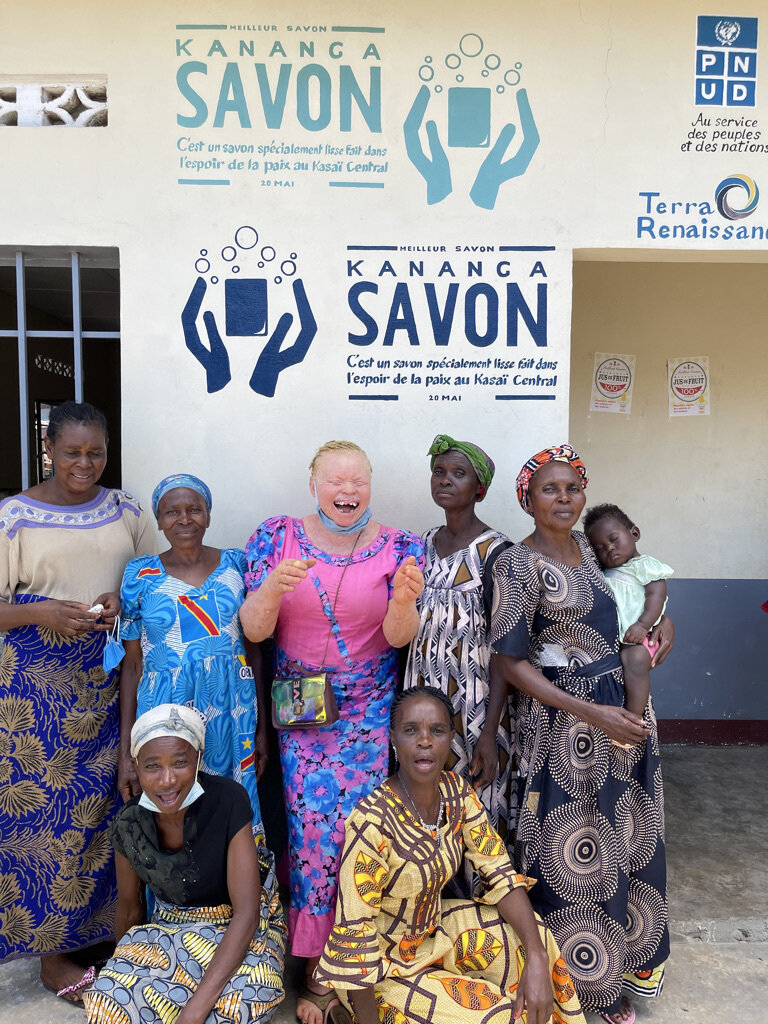By Channie Cheung | Member of Advocacy Team
Dear valued supporters,
We are writing to express our deep gratitude for your generous support for our project in the Democratic Republic of Congo. Your contribution has allowed us to make significant progress in our mission to empower local communities and improve their livelihoods.
One of the main focuses of our project has been the establishment of a soap-making initiative in the villages of Bakaukaniga and Bakaunda. These two villages have been historically in conflict, but through the training and resources provided by our project, residents have come together to learn new skills, improve their living conditions and build a sustainable future.
With your support, we have been able to provide training on the extraction of oil from palm trees, which is used as the raw material for soap production, as well as soap-making training. We have also constructed community facilities that serve as centers for oil extraction and soap production processes.
Soap-making training
Thirty villagers are taught how to harvest oil from palm trees, which is then used to make soap. Another thirty individuals learn the ins and outs of soapmaking. These sixty workers handle every step of the soap's production and distribution. The idea also calls for the building of community centers that will help oil extraction and soap-making work together. The community centers serve as nerve centers for soap and oil production operations. The main goal of the project is to help the people in the area by giving them access to education and tools that will help them build stable, long-term jobs.
All the trainees have now finished their respective training programs, and a combined graduation ceremony was recently conducted to celebrate their accomplishments. They can now support themselves by selling soap. This is one of the most impoverished and war-torn parts of the Democratic Republic of the Congo. The roads are in bad shape, making it difficult to deliver relief. This region is in an extremely precarious position.
Adapting to new circumstances and reestablishing economic stability in the face of threats like war and the COVID-19 epidemic can be achieved through the use of locally available resources like palm trees. The market has matured, and the production of soap has reached its maximum capacity of around 10,000 pieces per month. There is a need in the city of Bujumbura, and so far, buyers have been located there as well as in the surrounding countryside.
Recent price increases can be attributed in large part to the ongoing turmoil in Ukraine. Due to the increase in gasoline prices and transportation costs, the price of everyday commodities such as soap has also gone up. As a result, the villagers will be able to save money by using locally manufactured soap rather than purchasing costly soap that must be transported from outside the region if soap is to be made. The ninety benefactors who have received training in palm oil processing and soap-making technology should expect to encounter a number of challenges in the years ahead. As a result, we will maintain our follow-up assistance so that they can establish sustainable sources of income and careers.
Harmony is waiting for us.
We are happy that everyone was able to complete the training successfully. Even though it's hard to solve the conflict between the two villages right away, we hope that by working together, we can keep trying to bring peace to the two places.
Project introduction:
Our project strengthens conflict-vulnerable people's resilience. In 2017, Central Kasai state saw over 1 million people displaced and at least 2,600 incidences of sexual abuse. Terra Renaissance launched an office in Kananga, Central Kasai state, in conjunction with the United Nations Development Programme (UNDP) to serve 280 domestic refugees and war widows.
We taught agribusiness, pineapple juice-making, soap-making, productization, branding, and sales. Despite the coronavirus pandemic, these ladies were able to boost their average daily wage to 200 cents. The program has empowered these people economically, socially, and psychologically by helping them transition from food handouts to self-sufficiency.
Links:
Project reports on GlobalGiving are posted directly to globalgiving.org by Project Leaders as they are completed, generally every 3-4 months. To protect the integrity of these documents, GlobalGiving does not alter them; therefore you may find some language or formatting issues.
If you donate to this project or have donated to this project, you can receive an email when this project posts a report. You can also subscribe for reports without donating.
Support this important cause by creating a personalized fundraising page.
Start a Fundraiser


